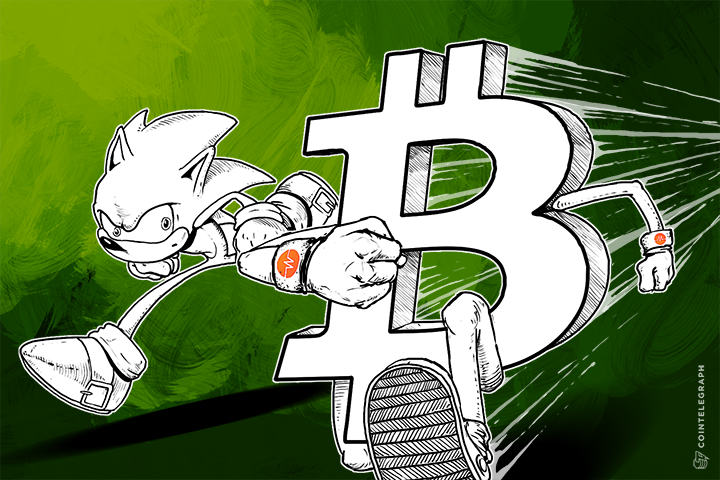Bitpay proposes zero confirmation solution for faster Bitcoin transactions and introduces clearing operator between the two interacting parties.
Bitpay has taken aim at solving the issue of slow confirmations on the Bitcoin network by proposing an open-standard “Impulse” system based on multiple payment channels. Designed to be “as trustless as possible,” the network would gather immediately available funds through previously confirmed payment channels.
White paper
Publishing their white paper on the concept of these “Inter-Channel Payments,” Bitpay is trying to solve the issue of blockchain confirmations for payments taking around ten minutes.
For most types of online bitcoin transactions, these delays do no pose a big problem. However, instant verification for over-the-counter sales similar to conventional credit cards will be needed as the number of bitcoin merchants grows and the networks scales.
The Impulse system is based upon the well established financial world of clearing houses; organizations designed to minimize the risk of trading parties defaulting on a transaction by the house being placed between the two actors. In the Bitcoin world, this would take the form of users pre-confirming their funds with such intermediaries and then using the confirmed “payment channel” funds to pay a receiving merchant or second user.

An inherent problem with such a system is the risk of reintroducing trust into a Bitcoin eco-system designed to operate as a trustless network. The integrity of the “operators” would be vital to this system in order to prevent double spending and insufficient payment attacks. Bitpay's solution is to build the structure of the system in a way that makes it hard and counter-productive for operators to fraud the system.
All transactions between the user wishing to make the payment and the operator would be co-signed, preventing any straightforward theft of funds. It's this co-signature from a trusted operator that the receiving party could also take as proof-of-payment in advance of actual blockchain confirmation. User payments to the operator are also proposed to include a “time-locked” forced refund after 30 days, so that in the event of a disagreement between the paying user and operator, the user funds would be returned without the multi-signature confirmation.
Users wishing to complete a 1 BTC transaction could use a 1 BTC payment channel they have pre-authorized, or two 0.5 BTC channels, or even one 0.75 BTC and one 0.5 BTC with the change being returned to the operator. Bitpay points to this as an inherent cost problem:
“Consider the case of a single 1.0 BTC payment, composed of an aggregation of multiple 0.25 BTC payment channels. Multiple payment channels implies multiple transactions on the blockchain.”
The cost of confirming these multiple payments, in addition to a presumed payment charge to the operator per transaction, could make the system inherently more costly to use for the user. In the current world of credit and debit card payments however, merchant fees for accepting these payments nearly always costs multiple percent of the total. In that sense, paying to receive funds wouldn't be a necessary hurdle to commercial adoption.
Vs. NoRiskWallet
Bitpay are not the only company chasing a solution to the issue of slow blockchain confirmations, Cointelegraph reported on the Amsterdam Bitcoin Hackathon, where team NoRiskWallet proposed a similar multi-party idea. Sebastian Lobato of NoRiskWallet explained the benefits of the system:
“In this way, no one is at risk of losing their money, even if the other two parties collude. The worst that could happen is that you'd have to wait a little while until the lock time is set. The user will have to wait in order to get his money back if the NoRiskWallet service doesn't uphold it's part of the deal, the NoRiskWallet service will have to wait to get its collateral back, and the merchant might have to wait for the collateral to be send in case the initial transaction gets double spend. But the amount of time they'd have to wait is determined by themselves, so it'd be a minor inconvenience at worst.”
A key difference between NoRiskWallet's and Bitpay's approach is that Bitpay's Impulse system is designed to be an open industry standard for widespread adoption in contrast to NoRiskWallet's P2P idea. Whether either takes off will be of course decided by user and merchant demand.
Did you enjoy this article? You may also be interested in reading these ones:


